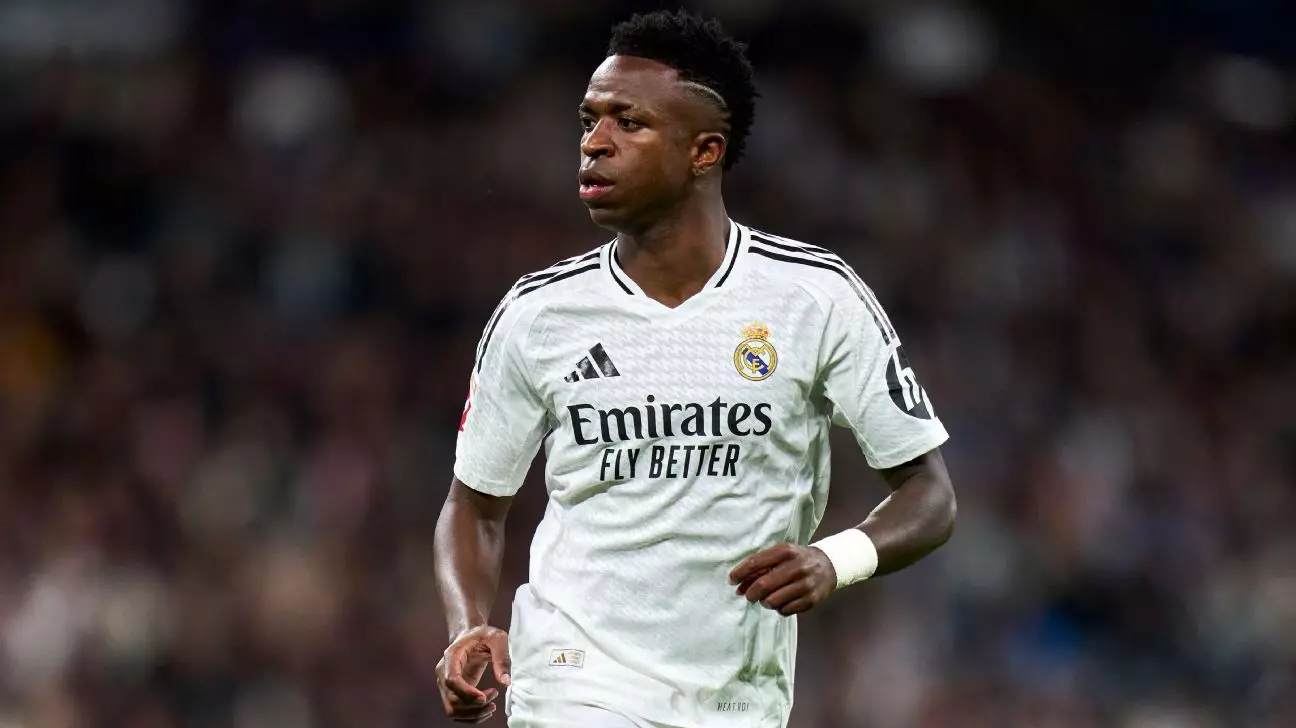In the competitive arena of football, awards often become a subject of heated debate among fans, players, and analysts alike. Most recently, Cristiano Ronaldo publicly voiced his opinion on the exclusion of Real Madrid’s Vinícius Júnior from the Ballon d’Or shortlist, claiming that the young forward was unjustly overlooked for the prestigious accolade. This statement, made during the Globe Soccer Awards, is particularly noteworthy given Ronaldo’s decorated history with the award—which he has claimed five times. His support of Vinícius underscores both the meritocratic aspects of football and the perennial struggle for recognition in a sport filled with talent.
Vinícius Júnior’s contributions to Real Madrid cannot be overstated. His decisive performances, particularly during the Champions League campaign, culminated in a memorable goal in the final. Ronaldo highlighted that such pivotal moments should weigh heavily in the minds of those deciding who deserves the Ballon d’Or. By emphasizing that winning the Champions League should matter more than individual accolades during a single season, he provides a compelling rationale for why Vinícius should have been awarded the prize over Manchester City’s Rodri, who also enjoyed a successful season but offered a different narrative arc.
Furthermore, Vinícius Júnior’s stature as a game-changer was recognized in other forums, evidenced by him winning FIFA’s The Best Men’s Player award earlier this month. This recognition, along with Globe Soccer’s best men’s prize, attests to his value on the pitch and suggests that while the Ballon d’Or is a coveted trophy, it does not solely define a player’s legacy or their impact on the sport.
Ronaldo’s comments also shine a light on the voting processes and criteria that govern prestigious awards like the Ballon d’Or. By critiquing France Football, the entity behind the award, he implied that the traditional structures of football recognition are in need of reevaluation. The perception that these ceremonies follow a predictable pattern can detract from their credibility and relevance, especially among players and fans seeking fair recognition of talent and performance.
Additionally, Ronaldo’s remarks about Manchester United—where he previously showcased incredible talent—shed light on the ongoing struggles faced by a club that has seen better days. His insights suggest that the issues plaguing the team are systemic rather than simply a reflection of managerial tactics. This further amplifies his authority, as a seasoned player who has navigated both personal triumphs and team challenges throughout his career.
As discussions around the Ballon d’Or continue to swirl, Ronaldo’s statements elevate the conversation beyond mere rivalry and personal interests; they call for a broader reflection on how we assess talent in football. Recognizing achievements within the context of team success will ensure that the sport remains grounded in its roots: winning games and lifting trophies, rather than merely accumulating individual awards. Thus, the world of football must reconcile its quest for individual excellence with the communal spirit that drives teams to their ultimate victories.

